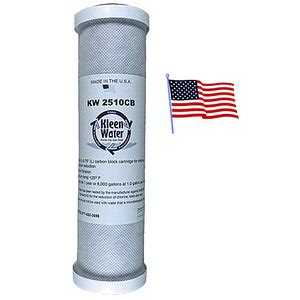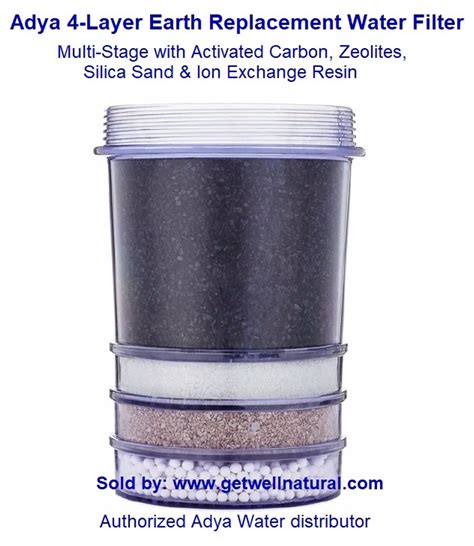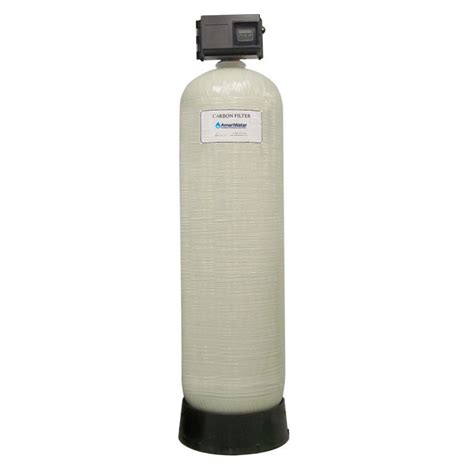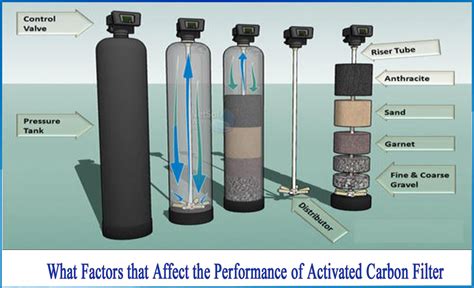As the world becomes increasingly aware of the importance of clean drinking water, the demand for effective and efficient water filtration systems has skyrocketed. Among the various types of water filters available, activated carbon water filters have emerged as a popular choice due to their exceptional ability to remove impurities and improve the taste and odor of drinking water. With their unique properties and versatility, activated carbon water filters have become a staple in many households, offices, and industries. In this article, we will delve into the world of activated carbon water filters, exploring their history, benefits, types, and applications, as well as their limitations and future prospects.
Key Points
- Activated carbon water filters are effective in removing chlorine, lead, and volatile organic compounds (VOCs) from drinking water
- They improve the taste and odor of water, making it more palatable
- Activated carbon filters have a long shelf life and are relatively low maintenance
- They are available in various forms, including pitcher filters, faucet-mounted filters, and under-sink filters
- Regular replacement of activated carbon filters is necessary to ensure optimal performance
History and Development of Activated Carbon Water Filters

The use of activated carbon in water filtration dates back to ancient civilizations, where it was used to purify water and remove impurities. However, the modern concept of activated carbon water filters emerged in the early 20th century, with the development of commercial activated carbon production. Since then, activated carbon water filters have undergone significant advancements, with improvements in filter design, materials, and manufacturing processes. Today, activated carbon water filters are widely recognized as a reliable and efficient means of removing impurities from drinking water.
Types of Activated Carbon Water Filters
Activated carbon water filters are available in various forms, each with its unique characteristics and applications. Some of the most common types of activated carbon water filters include:
- Pitcher filters: These are portable and convenient, making them ideal for home use
- Faucet-mounted filters: These are easy to install and provide a high flow rate, making them suitable for households with high water demand
- Under-sink filters: These are more comprehensive and provide better filtration performance, making them ideal for households with specific water quality concerns
- Whole-house filters: These are designed to filter all the water in a household, providing comprehensive protection against waterborne contaminants
| Filter Type | Flow Rate | Filter Life |
|---|---|---|
| Pitcher Filter | 0.5-1.5 gallons per minute (GPM) | 1-3 months |
| Faucet-Mounted Filter | 2-5 GPM | 3-6 months |
| Under-Sink Filter | 5-10 GPM | 6-12 months |
| Whole-House Filter | 10-20 GPM | 1-2 years |

Benefits and Limitations of Activated Carbon Water Filters

Activated carbon water filters offer numerous benefits, including improved taste and odor, removal of impurities, and low maintenance. However, they also have some limitations, such as limited effectiveness against certain contaminants, like dissolved solids and heavy metals. Additionally, activated carbon filters can become saturated over time, reducing their effectiveness. To overcome these limitations, it is essential to choose the right type of filter, maintain it regularly, and replace it as needed.
Applications and Future Prospects
Activated carbon water filters have a wide range of applications, from household use to industrial and commercial settings. As the demand for clean drinking water continues to grow, the market for activated carbon water filters is expected to expand. With advancements in technology and manufacturing processes, we can expect to see more efficient, effective, and sustainable activated carbon water filters in the future. Additionally, the integration of activated carbon with other filtration technologies, such as ultraviolet (UV) and reverse osmosis (RO), will provide more comprehensive solutions for water purification.
What is the average cost of an activated carbon water filter?
+The average cost of an activated carbon water filter can range from $20 to $500, depending on the type, quality, and brand.
How often should I replace my activated carbon water filter?
+It is recommended to replace your activated carbon water filter every 1-3 months, depending on usage and water quality.
Can activated carbon water filters remove fluoride from drinking water?
+No, activated carbon water filters are not effective in removing fluoride from drinking water. For fluoride removal, a separate filter or system is required.
In conclusion, activated carbon water filters have become an essential tool in the quest for clean drinking water. With their unique properties, versatility, and effectiveness, they offer a reliable means of removing impurities and improving the taste and odor of drinking water. As the demand for clean drinking water continues to grow, the importance of activated carbon water filters will only continue to increase. By understanding the benefits, limitations, and applications of activated carbon water filters, we can make informed decisions about our water filtration needs and ensure access to clean, safe, and healthy drinking water for generations to come.



